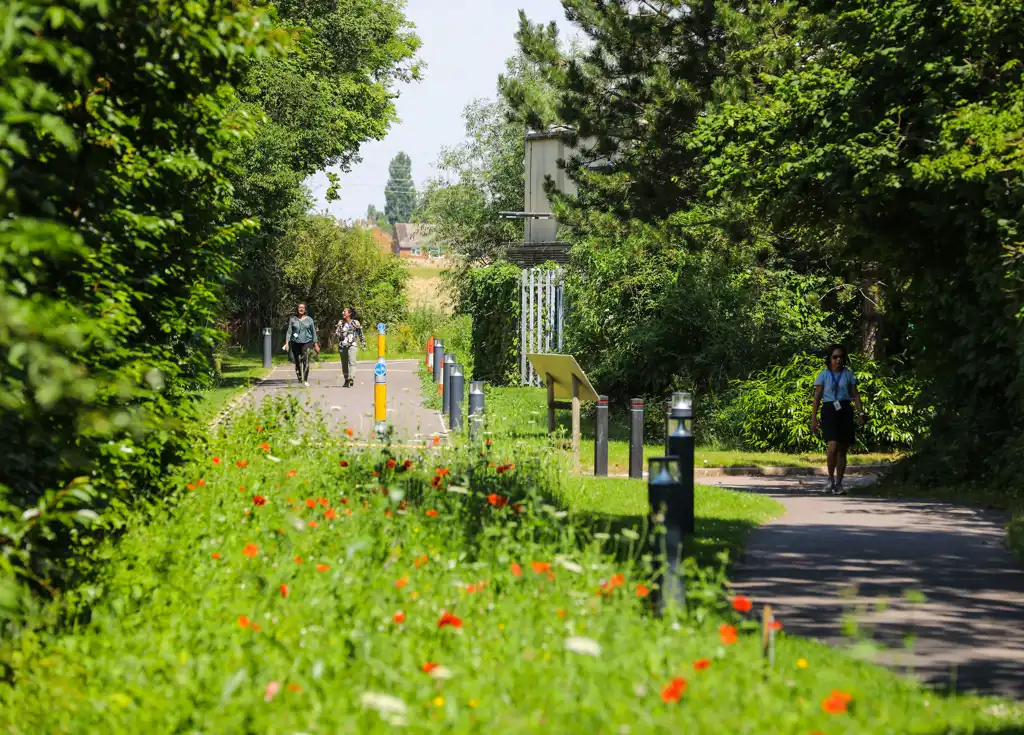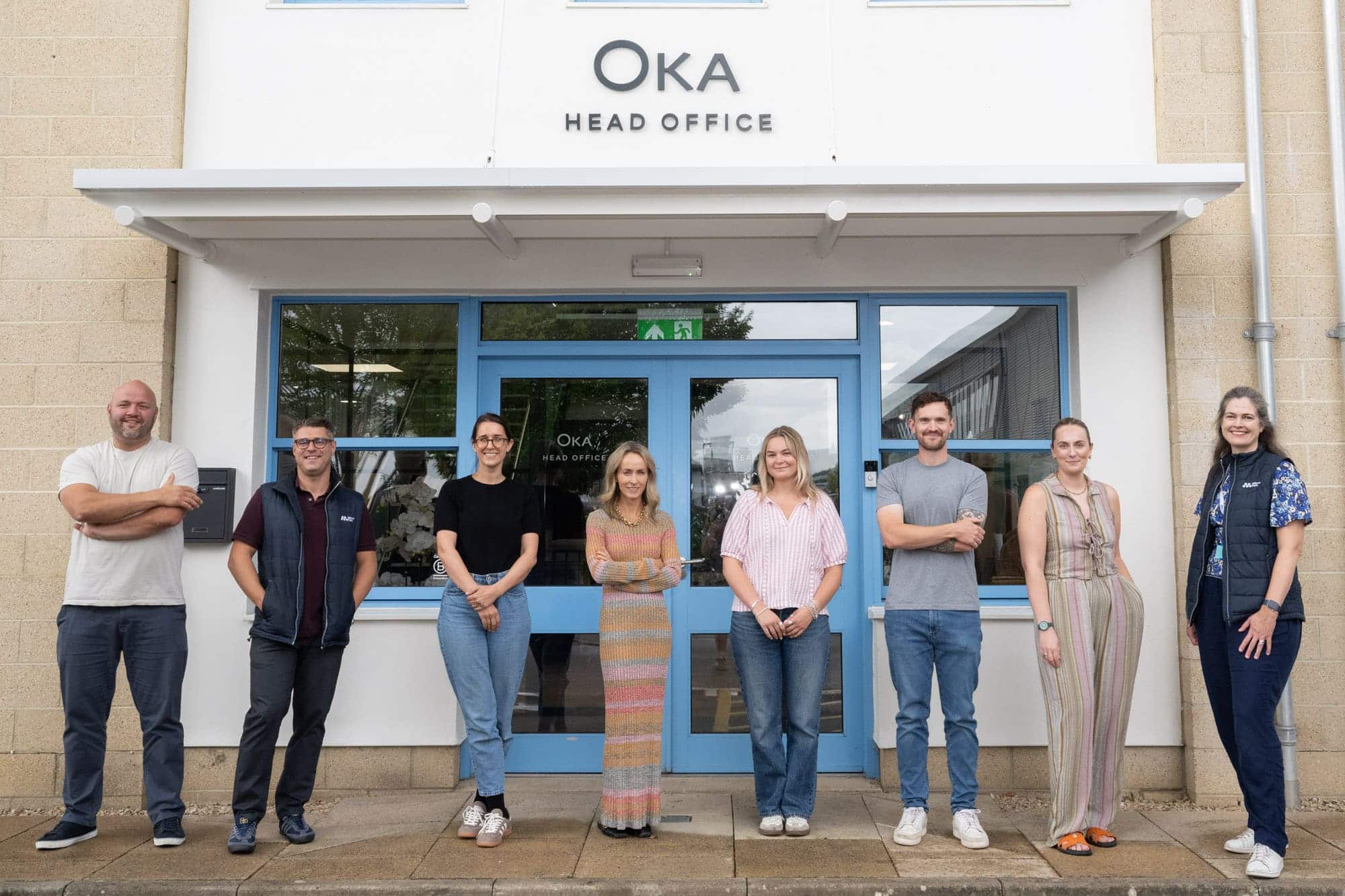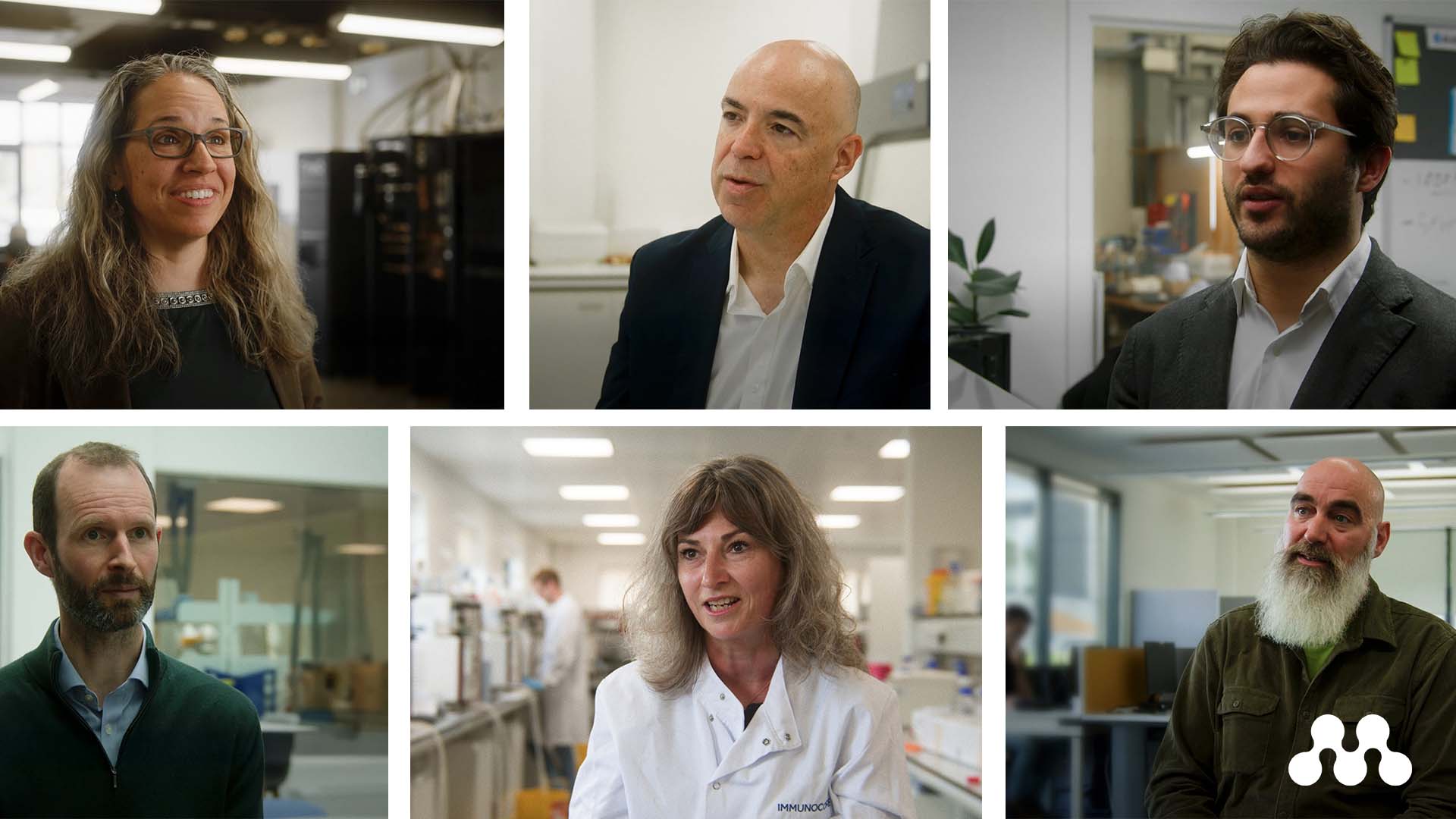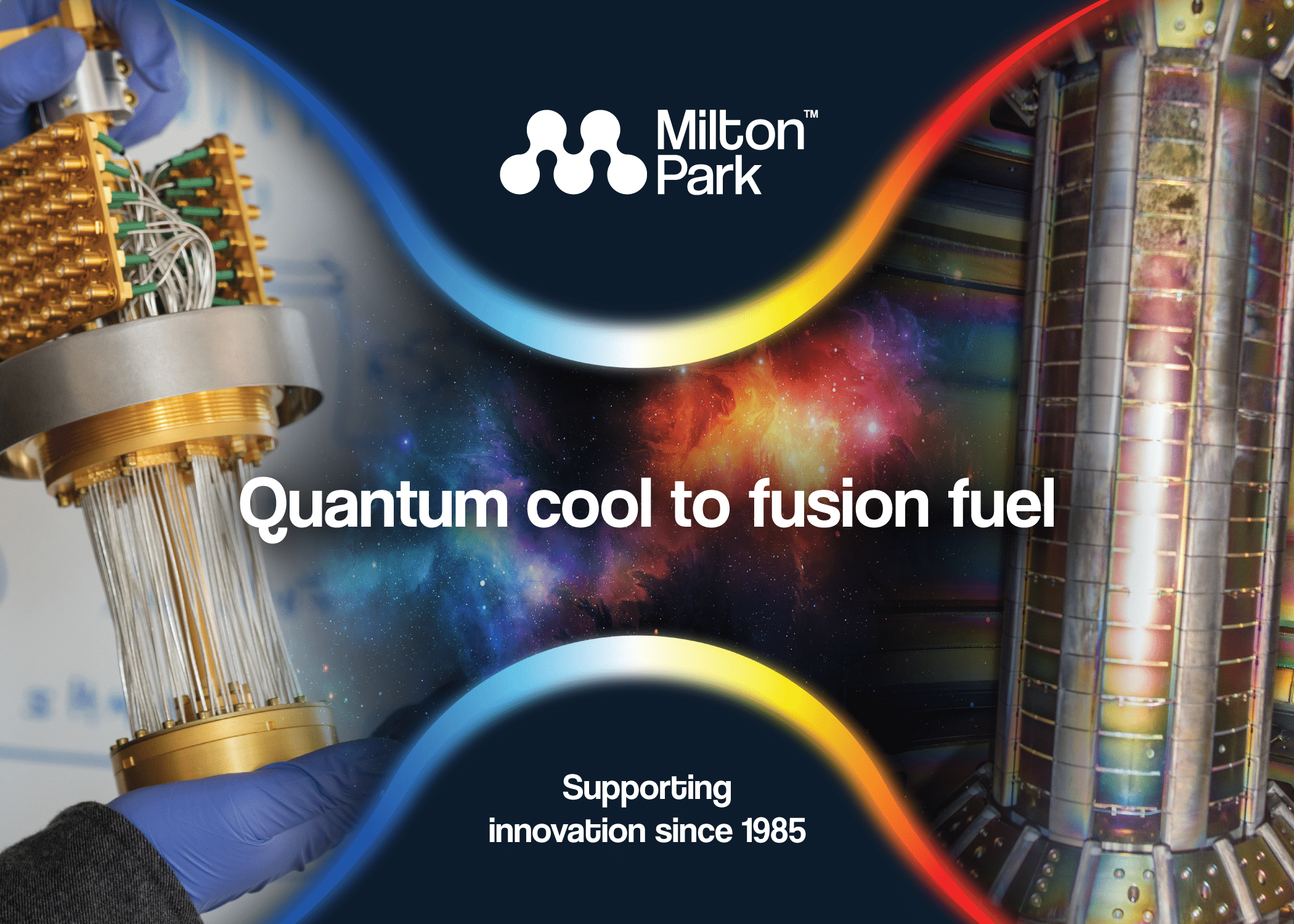Spotlight: Celebrating Earth Day at Milton Park
Published on 22 April 2022

The theme for this year’s Earth Day (Friday 22 April) is #InvestInOurPlanet. At Milton Park we’ve been focusing our efforts to ensure we’re investing in a sustainable future and operating in an environmentally friendly way.
Biodiversity
Enhancing biodiversity and nature across Milton Park’s 43 acres of green space is a top priority for our maintenance team. We take huge pride in our landscaped, outdoor spaces, making sure that they provide vibrant habitats for wildlife to thrive, such as our resident Canadian geese and honeybees.
We have 1400m2 of wildflower meadows with another 1500m2 planted this Spring. The meadows not only make the Park a pleasant place to be when they’re in bloom, but also provide a reliable source of pollen and nectar for the Park’s resident bee colonies. Strategic planting with a diverse range of flowering times means they can provide the honeybees with as much pollen and nectar as possible throughout the year to sustain them through the winter months. This method has proved successful enough that two more bee colonies will be introduced to Milton Park by the end of 2022.
In addition to the wildflower meadows, two miniature orchards will be introduced alongside the cycle path by building 127 and between buildings 152 and 155. The orchards will feature ‘Epicure’, ‘James Grieve’ and ‘Blenheim Orange’ apples trees alongside ‘Beurre Hardy’ pear trees. We have also planted the second oldest apple tree ever recorded, the ‘Milton Wonder’, aptly named after its first discovery in Milton Village.
Additionally, to mark the Queen’s Platinum Jubilee, we are participating in The Queen’s Green Canopy initiative – a nationwide effort to enhance our natural environment through sustainable tree planting.
Biodiversity is important to the team at Milton Park as:
- Across the UK wildflower meadows have seen a 97% decline since the 1930s
- 35 bee species are under threat of extinction in the UK alone
- The number of orchards across England and Wales has declined by 56%.
Reduce, Reuse, Recycle
Substantial efforts are being made across the entire Park to decarbonise our supply chains. This involves working with internal as well as external suppliers to utilise renewable energy sources throughout each stage of our management processes.
We’re currently converting our maintenance vehicles and tools on-site to being electric-powered. To help facilitate this change, we will be increasing the number of electric vehicle (EV) charging points across the estate. We also have plans to increase the number solar panels installed to further our use of clean energy.
For managing waste, we have a zero-to-landfill policy across the Park, resulting in approximately 242 tonnes of mixed recycling being processed each year.
To further improve the Park’s waste reduction, our maintenance team has partnered up with Happy Earth Soil, a local Oxfordshire company, to make our green waste completely reusable. The process involves collecting all the green waste across the entire estate, from grass cuttings to weeds and leaf mulch, and converting them into organic compost to be used as topsoil for the Park’s plants including urban garden plots.
Our chemical-free policy aims to eliminate the use of herbicides or pesticides in the Park’s green spaces, which promotes biodiversity. Here, ‘waste’ can be consistently utilised and reused in a closed cycle due to its fully organic nature. So far, in the short time we’ve been partnered with Happy Earth Soil, we’ve been able to recycle 80 tonnes of green waste.
Additionally, in an estate-wide commitment to improve our supply, consumption and waste processes, we recently secured the ISO 14001 certification for Environmental Management Systems (EMS). This certification was awarded to us by the British Standards Institution (BSI) after our successful completion of various assessments, evaluating how the Park operates across a whole host of environmental-related practices.
Sustainable development
Milton Park’s newest development, the Bee House has sustainability at its forefront. This innovative building is a refurbishment of the premises originally used by IT firm RM, which after 25 years of occupation moved across the road into new premises on Milton Park. Repurposing an existing building is one of the most sustainable construction methods, saving on resources, energy, on-site construction traffic and carbon production.
The Bee House will be electrically cooled and heated using a green renewable energy tariff that will allow occupiers to control the temperature of their own environment through a dedicated app. This system reflects the Park’s ambition to collaborate with its occupiers to reduce its carbon footprint.
Additionally, thanks to ASA Landscape Architects, the Bee House will have its own sustainable urban drainage system (SUDS) that will manage flooding and infiltration as well as creating unique ecosystems of biodiversity in the specially designed garden spaces.
For the Bee House, no stone has been left unturned, right down to the cleaning products which will be re-fillable, chemical-free, and biodegradable, utilising natural soluble capsules and chemical processes like oxidation to kill bacteria.
Get involved
Our Greener Workplace Forum is a completely independent platform for people at all companies across the Park to discuss best practice and sustainable initiatives.
If you’re at all passionate about environmental sustainability and would like to be involved in these discussions by joining the Forum, please do get in touch with Milton Park’s Sustainability and Community Manger, Veronica Reynolds.



